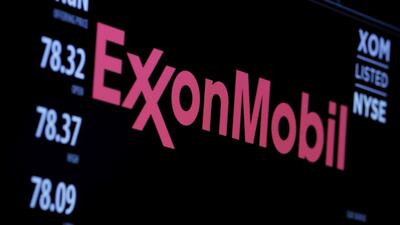Oil and gas companies in the US need to increase the pace of their energy transition and become part of a low-carbon economy as the government will demand more climate risk disclosures from them in the future, former US Secretary of Energy Ernest Moniz said.
“In the US, and I’ve said that before, the pace needs to be picked up dramatically and frankly, what happened with ExxonMobil is a harbinger of things to come,” Mr Moniz told the Citizens Energy Congress on Monday.
“One should not lose sight of the fact that the ESG [environment, social and governance standards] movement among the major investors and the fact that financial and regulatory instruments of the government and Biden administration are clearly going to force much more dramatic climate risk disclosures.”
Even the non-energy American companies such as Amazon and Microsoft are pushing for net zero goals to contribute to a resilient economic recovery.
“We are seeing an industrial shift where climate is going to be intrinsic to the companies’ business models and that’s one of the most important things that we can see for having success,” he said. “That was the message for ExxonMobil that climate risk disclosure must be part of the business model.”
Oil majors around the world have come under increasing pressure from activist investors, governments, courts and large institutional investors that follow ESG standards to reduce their carbon footprint and transition to clean energy.
Earlier this year, ExxonMobil lost three of its board seats to a small activist investor Engine No. 1, which had been pressing the company to cut emissions.
Royal Dutch Shell was ordered by a Netherlands court during the same week to slash its emissions harder and faster than planned, dealing a blow to the oil company and a move that could have far-reaching consequences for the rest of the industry.
In the US, the world's biggest producer of oil and gas, scrutiny of energy companies is increasing as President Joe Biden’s administration continue to push for a transition to cleaner sources of energy.
Since taking office in October last year, the president has frozen new exploration activities on federal lands and has brought the US back to the Paris Agreement, which seeks to limit emissions to below 2°C above pre-industrial levels, preferably about 1.5°C.
In March, the US Securities and Exchange Commission rebuffed attempts by ConocoPhillips and Occidental Petroleum to dismiss shareholder motions on emissions targets, a move that will force them to detail plans to cut their 'Scope 3' emissions.
The US, which has plans to lower its carbon emissions by 50 per cent by 2030 from its 2005 levels, needs energy companies to be a part of "the low energy coalition if we are to have any chance of accelerating" the transition, Mr Moniz said.
The oil and gas part of energy companies’ business is not going to disappear suddenly. However, it is a “rapidly changing market” and energy companies can be a part of the low-carbon economy.
“If I am an oil and gas company, I would know there are many parts of a low-carbon economy that calls for [my] skill set and capabilities,” he said. “Oil and gas companies can accelerate to that future and be a significant contributor to the low-carbon economy.”
To reach net zero economy by the middle of this century, “we also need a decarbonised electricity sector and we are also going to need a fuel to complement electricity”, he said.
Hydrogen is a good alternative and oil and gas companies can play a part in its development, the former secretary added.


